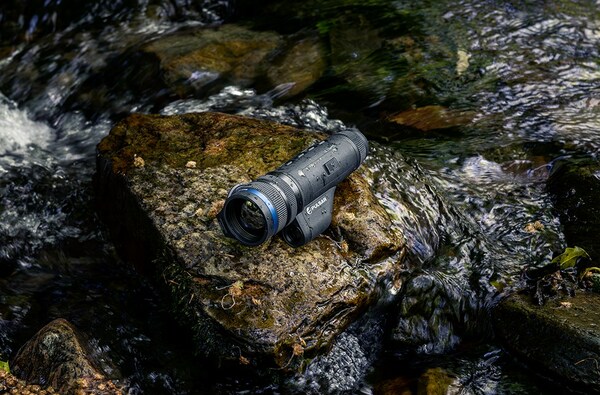Yukon Group, Europe’s leading thermal imaging and night vision company, has launched the world’s first upgradable thermal monocular for civilian use. The Pulsar Telos LRF XP50 is set to become an indispensable tool for hunters, explorers and rescuers everywhere.
“This device is the first of its kind in the field of optical engineering,” said Yukon Group CEO Volha Alsheuskaya. “Our product allows users to seamlessly upgrade with enhanced features such as more powerful optics, higher-resolution sensors or additional laser rangefinders – while retaining their existing device. We believe its upgradability function will be embraced by other manufacturers around Europe and beyond.
“Upgradability is environmentally friendly. As part of Yukon Group’s commitment to reducing e-waste, the ability to add and replace features on the Telos LRF XP50 improves longevity and significantly reduces its environmental impact.”
According to the United Nations, more than 80 % of e-waste is not formally recycled. Meanwhile, more than 50 million tonnes of e-waste is produced each year – a figure that is increasing.
Sustainable and long-lasting, the Telos LRF XP50 embodies Yukon Group’s core mission to evolve with users’ needs while offering exceptional durability. Upgradeability ensures the device remains future-proof and at the forefront of thermal imaging technology. Whenever a new feature or an upgrade becomes available, Telos LRF XP50 owners from any EU country will be invited to send their devices to the company to get updated.
The Telos LRF XP50 doesn’t make any sacrifices where it counts: performance. The device was recognised in the 2024 British Shooting Show with the prestigious Innovative Product of the Year award.
The Telos LRF XP50 breaks ground on EU sustainability regulations, which incentivises companies to produce more environmentally conscious products and extend their usage. Rather than prohibiting manufacturers from designing products with intentionally limited lifespans, these regulations promote the provision of software updates, consumables, and spare parts to prolong the longevity of their devices. This mindset of responsible resource management is fundamental to Yukon Group.
With Telos LRF XP50 in mind, she urged businesses to better integrate sustainability principles into their products, as conventional measures for reducing carbon emissions often fall short of what is needed to address environmental concerns adequately.
Yukon Group has introduced several major innovations in civilian thermal imaging optics, including being the first in the market to digitalise devices. It is currently transitioning to the principles of circular economy. The largest part – 75% – of its plastic inputs are made from recycled materials. Yukon Group recycles 80% of the waste it generates and its offices and factories are powered by green energy in all eight of its companies. Its devices, branded as Pulsar, are exported to more than 70 countries worldwide, 90% of them – to the EU and USA.



